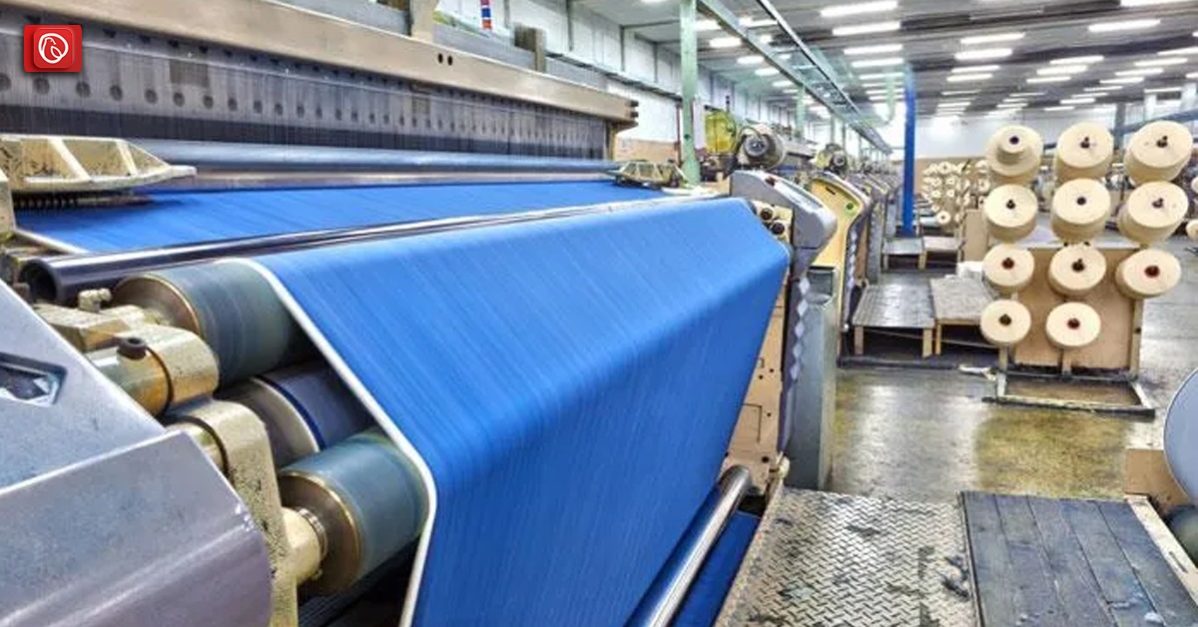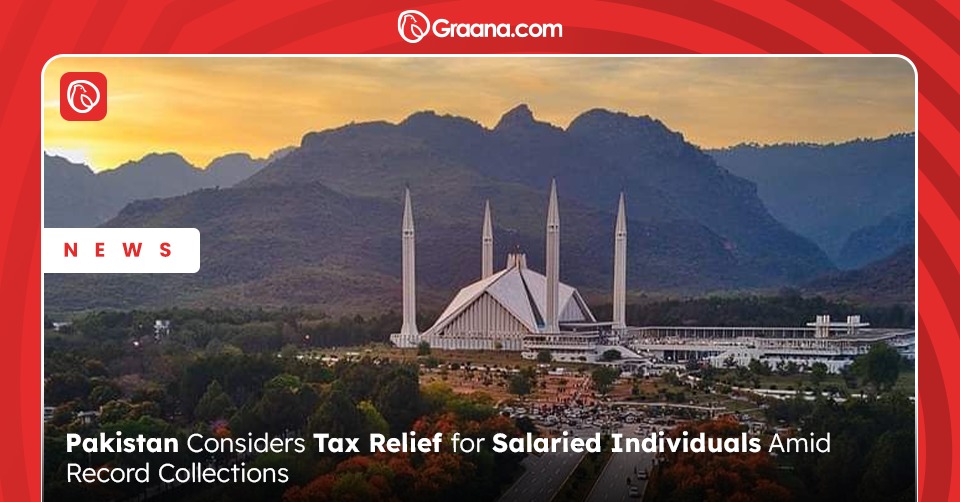The textile industry holds a significant position in the country’s economy, and Faisalabad plays a vital role in this sector. It is home to numerous textile mills that contribute to the country’s textile production and export.
In this article, Graana.com explores the economic importance of the city, the range of products manufactured, technological advancements, employment opportunities, challenges faced by textile mills in Faisalabad, sustainability initiatives, and the future outlook for this industry.
Introduction to Textile Mills in Faisalabad
Faisalabad, located in the province of Punjab, has emerged as a major hub for textile manufacturing in Pakistan. The city’s favourable geographical location, availability of raw materials, skilled workforce, and infrastructure have made it an ideal destination for textile mills.
These mills encompass various stages of textile production, from spinning and weaving to fabric dyeing, printing, and garment manufacturing.
Historical Background of Faisalabad’s Textile Industry
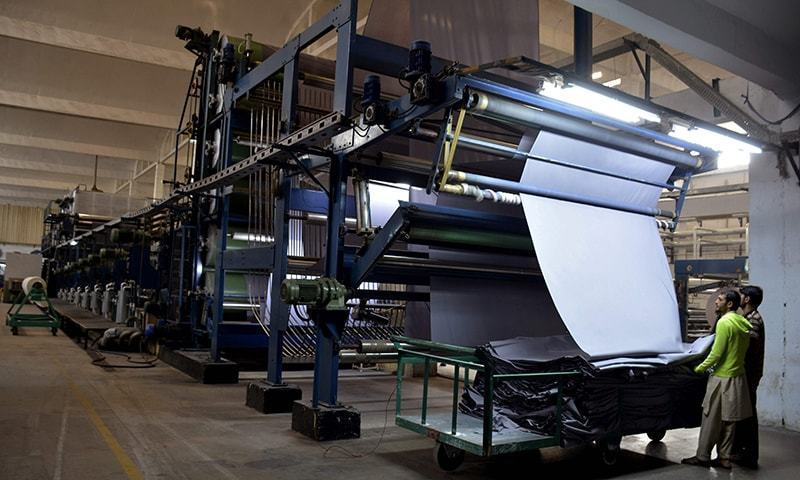
The textile industry in Faisalabad can be traced back to the early 20th century, when the British colonial rulers established cotton ginning and pressing factories. Over time, the city evolved into a textile powerhouse due to its strategic location near major cotton-growing areas. The industry rapidly flourished during the post-independence era.
Importance of Textile Mills in Faisalabad’s Economy
The textile sector is the backbone of Faisalabad’s economy, contributing significantly to employment generation, export earnings, and overall industrial growth. It is responsible for a substantial share of Pakistan’s total textile production. The revenue generated from textile exports helps strengthen the country’s foreign exchange reserves and supports economic development.
Major Textile Products Manufactured in Faisalabad
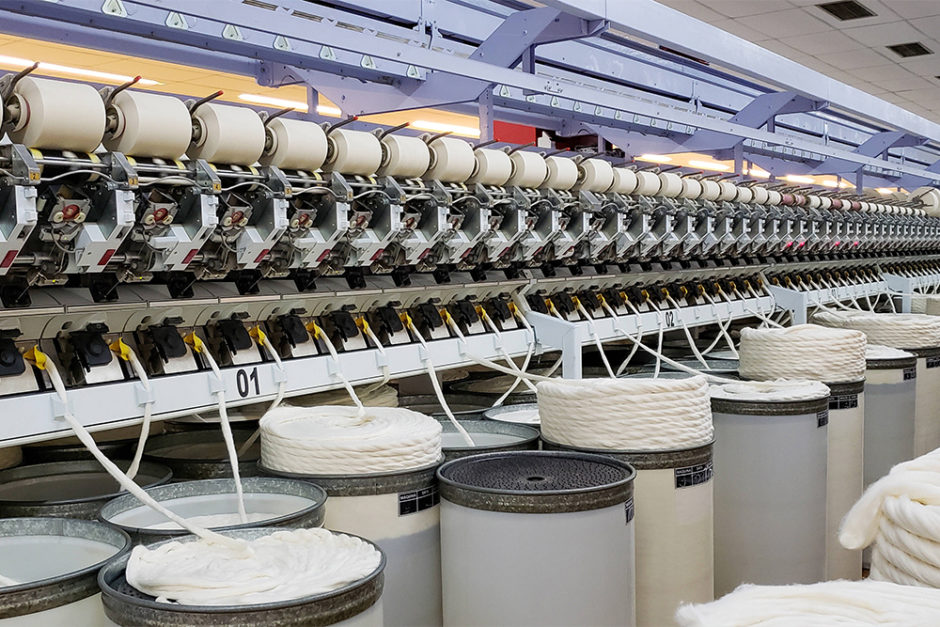
Following are the different types of textile products manufactured here.
Cotton Yarn Production
One of the primary areas of focus for textile mills in Faisalabad is cotton yarn production. They produce a vast quantity of high-quality cotton yarn, catering to both domestic and international markets. The yarn manufactured here serves as a crucial raw material for subsequent stages of textile production.
Fabric Manufacturing
The mills also produce a wide variety of fabrics, including cotton, polyester, blends, and speciality fabrics, all of which are used for both apparel and home textile applications.
Garment Production
Many textile mills in Faisalabad have integrated garment manufacturing units. These produce a diverse range of garments, such as t-shirts, shirts, trousers, and dresses. Faisalabad’s garment industry not only meets domestic demand but also exports to international markets.
Home Textile Manufacturing
The mills in this city manufacture various home textile products, including bed sheets, towels, curtains, and upholstery fabrics. Faisalabad’s home textile products are known for their quality, durability, and aesthetic appeal.
Technological Advancements in Faisalabad’s Textile Mills
Faisalabad’s textile mills have embraced technological advancements to enhance efficiency, productivity, and quality in their operations. Modern spinning machines, automated looms, computerised dyeing and printing equipment, and advanced finishing processes have revolutionised the textile manufacturing landscape in the city.
These technologies enable mills to produce textiles that meet international standards and cater to diverse customer requirements.
Employment Opportunities
Textile mills in Faisalabad are major employers, providing job opportunities to a significant portion of the local population. The industry offers a wide range of employment options, including skilled and unskilled labour, technicians, engineers, designers, and managerial positions.
Challenges Faced by Textile Mills in Faisalabad
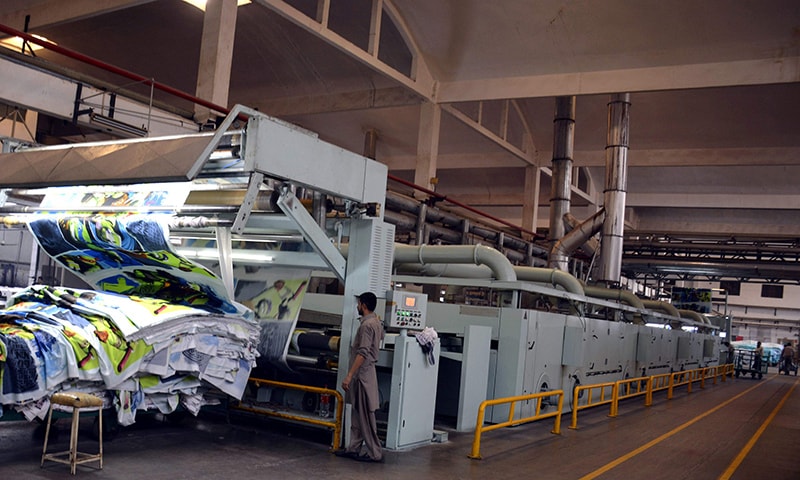
While Faisalabad’s textile industry has enjoyed tremendous growth, it faces several challenges that need to be addressed for sustained progress.
Global Competition
It faces fierce competition from global textile manufacturers, particularly those in neighbouring countries. To remain competitive, Faisalabad’s mills need to continually upgrade their technology, improve product quality, and explore new market opportunities.
Energy Crisis
Like many other industries in Pakistan, textile mills in Faisalabad grapple with an energy crisis. Frequent power outages and high electricity costs hamper production and increase operational expenses. Sustainable energy solutions and government support are crucial to overcoming this challenge.
Top Textile Mills in Faisalabad
Following are some of the prominent textile mills in Faisalabad and their contributions to the city’s textile industry.
Chawla Enterprises
Chawla Enterprises is known for its expertise in cotton yarn production. With a robust infrastructure and advanced machinery, it produces a wide range of yarns, meeting the demands of various industries.
Its commitment to quality control and consistency has helped it establish long-standing relationships with customers both within Pakistan and abroad.
Rashid Textile Printing Industries
Rashid Textile Printing Industries is renowned for its expertise in fabric printing. With cutting-edge printing technology and a skilled workforce, it produces vibrant and intricate designs on various fabric types. From traditional to contemporary prints, it caters to the ever-evolving fashion and home textile markets.
Crescent Textile
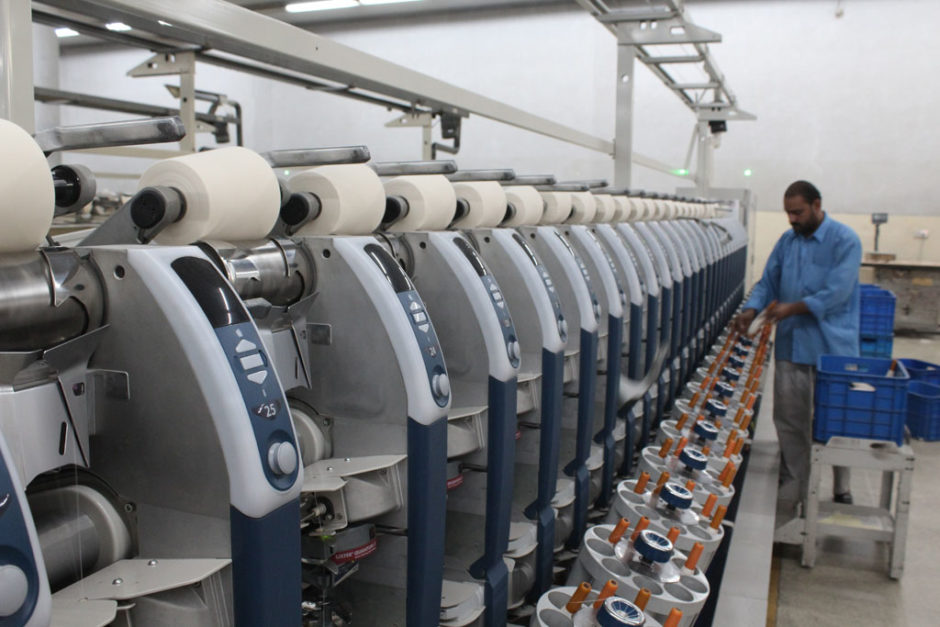
Crescent Textile is one of the leading textile mills in Faisalabad, specialising in the production of high-quality fabrics. With state-of-the-art manufacturing facilities and a focus on innovation, it caters to both domestic and international markets.
Its product range includes a diverse array of fabrics, including cotton, polyester blends, and speciality textiles. Crescent Textile’s commitment to quality and customer satisfaction has earned it a prominent place in the textile industry.
Saab Weaving Textile Mills
Saab Weaving Textile Mills is a prominent name in the textile industry, specialising in weaving and fabric production. It boasts a wide range of modern weaving machines and a highly skilled workforce, enabling it to produce fabrics of exceptional quality. Saab Weaving Textile Mills caters to both local and international clients, offering fabrics for apparel, home textiles, and industrial applications.
H.J Textile Mills
H.J Textile Mills has made a name for itself in the textile industry with its focus on sustainability and eco-friendly practices. It prioritises the use of organic and sustainably sourced materials in their textile production processes.
H.J Textile Mills specialises in the manufacturing of eco-friendly fabrics that cater to environmentally conscious consumers. Its commitment to sustainability sets a positive example for the industry.
Kausar Textile Industries Pvt Ltd.
Kausar Textile Industries Pvt Ltd. is a well-established textile mill in Faisalabad, known for its extensive range of home textile products. From bed sheets and curtains to towels and upholstery fabrics, it offers a wide variety of high-quality products. Its attention to detail and design aesthetics make its home textile offerings stand out in the market.
Okara Corporation Pvt Ltd.
Okara Corporation Pvt Ltd. is a textile mill that excels in fabric dyeing and finishing processes. It has invested in advanced machinery and technologies to ensure vibrant and consistent colours in their fabrics. It is known for its expertise in producing dyed and finished fabrics that meet international quality standards. Its commitment to excellence has earned it a solid reputation in the textile industry.
Nimra Textile Pvt Ltd.
Nimra Textile Pvt Ltd. specialises in the production of garments. It has a vertically integrated setup, encompassing fabric production, garment manufacturing, and quality control. It caters to a diverse range of clients, offering stylish and high-quality garments for men, women, and children. Its dedication to fashion-forward designs and timely delivery has made it a preferred choice for many renowned brands.
Ihsan Yousaf Textile Pvt Ltd.
Ihsan Yousaf Textile Pvt Ltd. is a leading textile mill known for its advanced spinning capabilities. It produces premium quality cotton yarn, which serves as a crucial raw material for various textile applications. With a focus on technological advancements and stringent quality control measures, it ensures that its yarn meets international standards and customer expectations.
Qarni Textiles Ltd.
Qarni Textiles Ltd. is a well-established textile mill in Faisalabad, specialising in the production of a diverse range of fabrics. It caters to both domestic and international markets, offering fabrics for apparel, home textiles, and industrial applications. It is known for its attention to detail, consistent quality, and reliable customer service. Its commitment to customer satisfaction has helped it build strong relationships with clients worldwide.
These textile mills, along with many others in Faisalabad, form the backbone of Pakistan’s textile industry. Their expertise, innovation, and commitment to quality contribute significantly to the growth and success of the industry. They continue to drive the fabric of the industry, cementing the city’s position as a textile hub in Pakistan.
Conclusion
Textile mills in Faisalabad are an integral part of Pakistan’s textile industry and play a crucial role in the country’s economic development. Faisalabad’s rich textile heritage, diverse product range, technological advancements, and employment opportunities make it a vibrant textile hub. While challenges persist, concerted efforts to address global competition, energy crisis, and environmental concerns can pave the way for a sustainable and prosperous future.
For more information on related topics like textile companies in Karachi, visit Graana Blog.
FAQs
Q: What is the significance of Faisalabad in Pakistan’s textile industry?
Faisalabad holds immense significance in Pakistan’s textile industry as it is a major hub for textile manufacturing. The city’s textile mills contribute significantly to the country’s textile production, employment generation, and export earnings.
Q: How do textile mills contribute to Faisalabad’s economy?
They contribute to the city’s economy through job creation, revenue generation, and industrial growth. These mills provide employment opportunities to a large number of people, contribute to the city’s tax revenue, and strengthen Pakistan’s foreign exchange reserves through textile exports.
Q: What are the main challenges faced by textile mills in Faisalabad?
They face challenges such as global competition, energy crisis, and environmental concerns. Global competition requires continuous improvement in quality and technology. The energy crisis affects production due to frequent power outages and high costs. Environmental concerns necessitate sustainable practices and compliance with regulations.
Q: What steps are being taken to address environmental concerns in Faisalabad’s textile industry?
Faisalabad’s textile industry is taking various initiatives to address environmental concerns. These include adopting eco-friendly technologies, implementing wastewater treatment systems, reducing carbon emissions, and complying with environmental regulations. Collaborative efforts between industry stakeholders, government bodies, and international organisations are driving sustainability in the textile sector.
Q: What is the future outlook for textile mills in Faisalabad?
The future outlook seems promising. With investments in technology, innovation, and sustainability, Faisalabad’s textile industry can maintain its competitiveness and expand its market share. The city’s strategic location, skilled workforce, and focus on sustainable practices position it favourably for future growth in the global textile market.
For more information, visit Graana blog.
